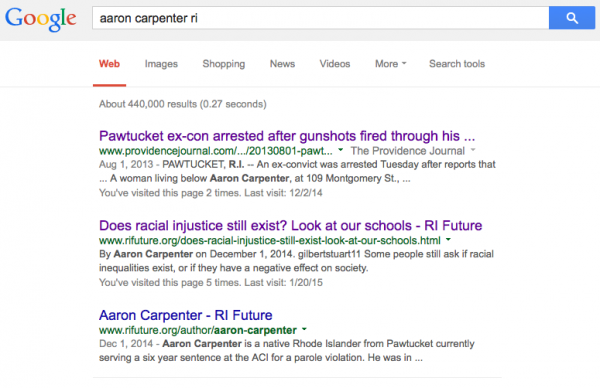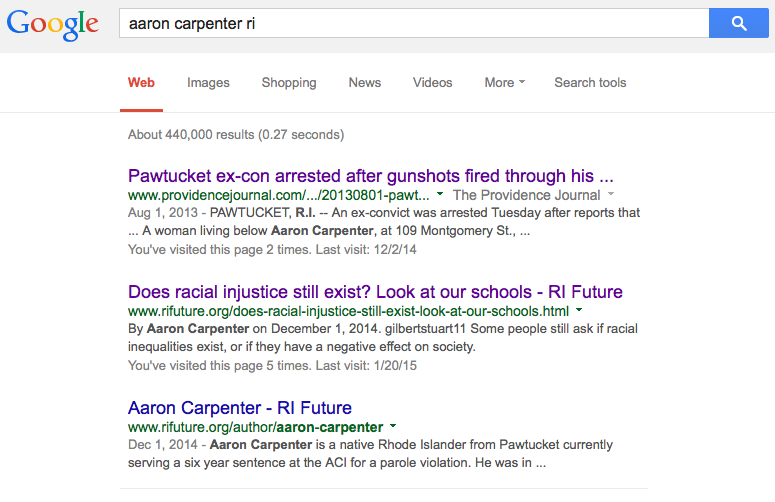Incarcerated students in my CCRI Introductory Sociology course are expected, like my students elsewhere, to write 1-2 page reflection papers each week on themes that we discuss in class. Writing is, of course, one of the most important liberal arts competencies, and it is part of my job as a professor to help students find their “voices”—their tones in writing that permit them to most clearly express themselves.
Sociology is the study of human society, and we talk about everything from gender to class to race to education to inequality to crime and deviance throughout the course of a semester. These weekly class reflection papers (we call them “thinkpieces”) are designed to give students the opportunity to apply theory to real life: to take ideas from the classroom and use them to make sense of their own experiences. This is sociology’s task and, of course, its promise.
These “thinkpieces” of students in prison are generally of extraordinary caliber, and offer both insights into the human beings who serve time, and into the social dynamics that contribute to all of our lives.
In the fall of 2014, a student at the men’s medium-security facility wrote a very compelling reflection paper on the subject of public education. We had been studying social institutions in class, and he had been reading both the textbook and a supplementary piece by well-known academic-turned-journalist Jonathan Kozol.
When grading his paper I noted that it had the skeleton of a good op/ed: it identified a relevant problem in the news, it explained why it was important, it offered a solution, and it was of unsurpassed eloquence, especially for someone that had initially been very hesitant to participate in discussion.

Publication demonstrated for Aaron that he can still make a positive, substantive impact on society. And for society, his publication demonstrated that incarcerated people can still make a positive, substantive impact. RI Future editor/publisher Bob Plain and I knew we had discovered a way to combine our crafts to facilitate constructive participation from people inside.
Thus began the Prison Op/Ed Project, an on-going series of timely op/ed writing to be published on RI Future by CCRI sociology students living in Rhode Island prisons.
With the assistance of Bob and myself, students learn to write sociological analyses of problems that use empirical evidence and consistent argument, rather than anecdote or hyperbole. They learn how to address different audiences, and how to shape those analyses for public consumption. They have a soapbox, and also get—in some cases for the first time—exposure to readership outside their inner circles.
Finding one’s voice and writing for a public is an important part of civic education, and writing has the potential to unlock some of the best of human nature. It is our hope that this project makes students better, more empowered, and more articulate actors and critics, for both themselves and the world.
Prison Op-Ed Project contributors are all students in CCRI’s Introductory Sociology Class, which itself is a part of the Rhode Island Department of Corrections Special Education Program. Read a recent study by the staff of the Correctional Education Association, the US Department of Education, and the Indiana Department of Correction on the benefits of correctional education programs.

